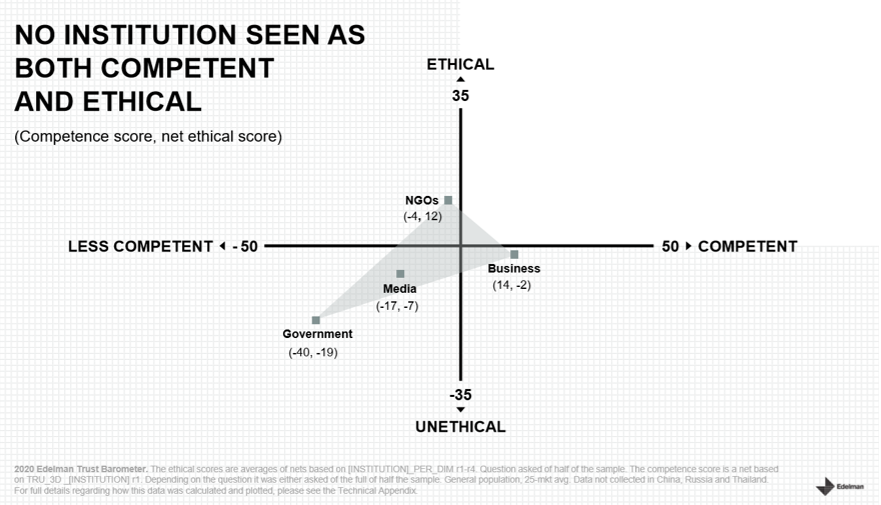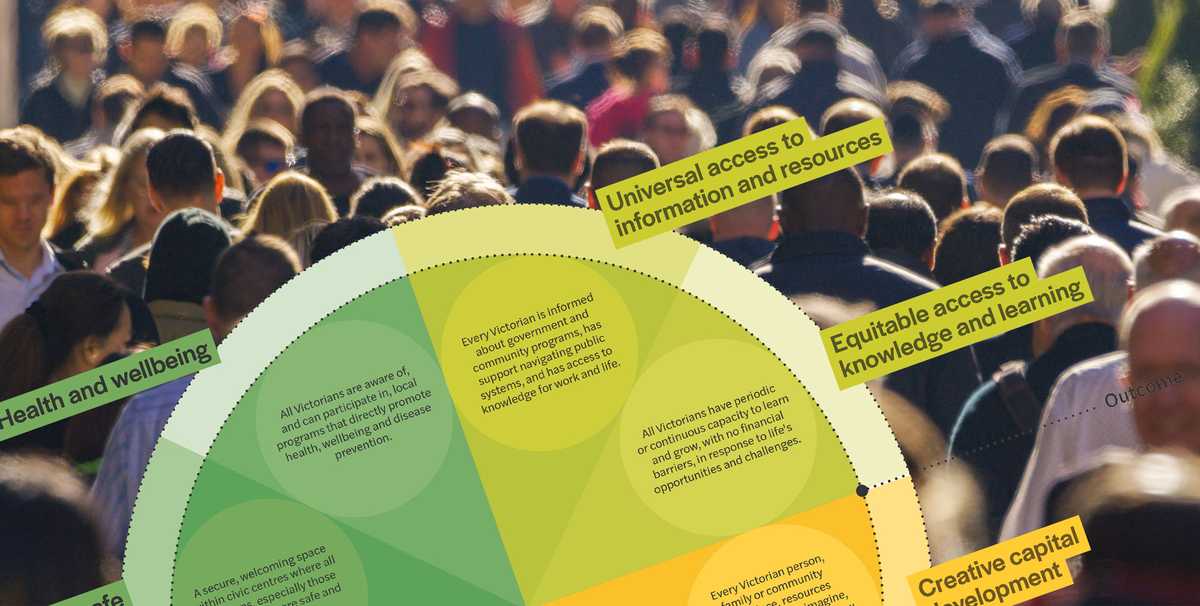
Trust is rising from an all-time low in Australia.
But how quickly can our institutions move to regain it? The word on the street (and on Q+A) suggests: not fast enough.
As social and environmental conditions continue to shift, the real-world impact on communities intensifies, and scrutiny of governments, charities, businesses and experts sharpens.
We can look to recent criticism of the Red Cross’ bushfire appeal, and the transparency delivered by the organisation subsequently, to see how trust critically impacts brand and reputation. Even organisations that exist to act in the interest of the greater good, are subject to backlash that can prevent it from doing what it set out to do.
In increasingly challenging times, every organisation, in every sector, must realise: trust is not a nice-to-have; it’s a must-have. It’s a make or break. As an organisation, and as a society, we need it.
Why being a ‘trusted’ brand matters.
For people to trust you, they need to believe that you will do what you say you will, even when they aren’t watching.
With trust, organisations build brand resilience, enabling them to take risks, weather reputational challenges, attract funding, and innovate for growth as their operating environments evolve. It’s a powerful position from which an organisation can achieve its purpose.
Without it, organisations are left vulnerable. Their actions are subject to greater scrutiny, they are at risk of losing their status – be it their position in the market, their voice in the public domain, their capacity to serve the people who rely on them – particularly in moments of crisis when scrutiny of institutions is heightened.
How to build trust – and keep it.
According to the ‘three-C model’, there are three key characteristics that must be clearly and consistently demonstrated to earn, maintain and strengthen stakeholders’ trust over time:
Care (your intent). You express a genuine commitment to doing the ‘right’ thing for your customers and stakeholders.
This can take the form of a purpose statement, that clearly and unequivocally outlines your organisation’s intentions to deliver what your customers, clients and other beneficiaries need. If your business has a shared value strategy, this will state the ‘good’ you deliver, socially and environmentally.
Competence (your capability). You have the skills and knowledge to get the job done.
Competence, alongside ethics (doing the ‘right thing’), are two key components for building trust and, in turn, brand. Yet, no institution – government, NGOs, media or business – is perceived as having both.
NGOs rank positively for ethics, but negatively for competence. The inverse is true for business, while government and media trail behind on both measures.

Character (your integrity and results). You are reliable. You do what you say you will.
This characteristic, in particular, can be expressed in many ways. But critically, you must follow the most important mantra in business communications: show, don’t tell.
Consistent communication and messaging builds trust. It shows that your organisation lives and leads with purpose, everyday.
Campaigns, content marketing and other creative executions tell compelling human-centred stories, targeting messages to reach diverse audiences in the spaces where they’re most likely to engage.
Your results should form the backbone of these stories. Social impact measurement provides data that evidences your achievements as an organisation, and how you’ve worked to increase your impact over time. This is integral insight for shareholders, investors and funders across sectors.
Often, organisations will invest in measurement over communications, or vice versa. But both are critical parts of making it clear that you operate with purpose.
When people see what you do, your purpose is more than just words. It’s worth trusting.

